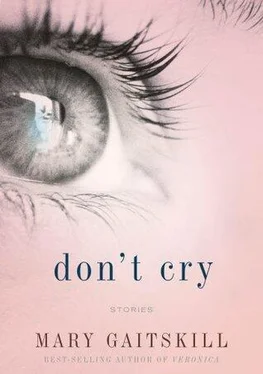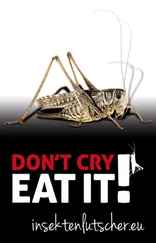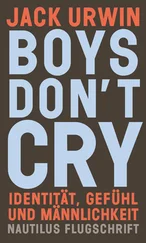When we were done eating, we took Sonny back to the hotel. Sofia and her other daughter, an eleven-year-old in braids, whose name was Mekdes, went with us. Mekdes was amazed at the hotel's plumbing; she kept turning the water on and off. Katya was itching to buy baby food and clothes — what Sonny had on was filthy — and so Sofia made Mekdes calm down and instructed her to watch the baby while we went shopping.
“Can she do that?” asked Katya. “At her age?”
“Of course she can,” said Sofia. “She's cared for children younger than this one.”
The clothing store was a dark little hole stuffed with boxes of ridiculously ugly baby clothes from Eastern Europe; Katya loaded her arms with them. Sofia's phone rang and she turned her back to us to answer it. A small girl capered as she walked in behind her mother; the mother frowned, planted herself in front of a box, and started digging. Still capering, the child made a beautiful gesture with her head, nuzzling the air the way a kitten might rub against its mother. Smiling, Katya held up an orange corduroy jumper with a lavender collar. Sofia turned to us. “Stop,” she said. “You have to stop. This is my husband. The mother just came back to the hospital. She is very angry She wants her baby back.”
Kebede drove us to the hospital. Sofia held Sonny; Katya didn't want to. She had pulled into herself and become very contained. Kebede told us that the hospital staff was very upset with the mother for showing up after leaving the child for so long.
“Why?” said Katya tonelessly “It's her right.”
“She's a day laborer,” said Kebede. “She lives outdoors; she lives from hand to mouth. The hospital staff say she's retarded. The baby will die with her.”
There was a crowd of hospital staff gathered in front of the hospital, and they came forward to meet us when we got out of the car. They were all talking loudly, but my eyes went to the only silent one among them: a small beaten-looking woman with long dirty hair and flat breasts hanging way down her body. She was dressed in filthy ragged clothes and the earrings had been torn from her ears. Her eyes were small and hot and I could not read their expression; it came from too far back in her head. I looked at her and thought, This woman is not retarded. Her eyes went past me and fell on Katya; her deep expression came forward slightly Katya steadily returned the look; I could not read her expression, either. Sofia went forward and put the baby in his mother's arms. Everyone fell silent. The mother glanced at Sofia, went toward Katya, and tried to hand the baby to her. Everybody burst out talking. Katya automatically reached for the baby, but before she could take him, Kebede stepped in and took him. The baby screamed and reached for his mother. Looking meaningfully at the mother, Kebede gave the sobbing baby to a female hospital staffer. The staffer handed the child back to his mother. The mother took the child, walked around the staffer, and tried to approach Katya again. Everybody was yelling then. Kebede moved in front of the mother, blocking her. The baby screamed. Katya hung her head and turned back to the car, both hands pressed against her chest.
It was over in less than five minutes. After the mother walked away with the baby, Sofia went to the car to comfort Katya. I was too stunned by the scene to leave it that quickly. Kebede stood for a while talking with the hospital people, but I could not understand what they were saying.
When we got back to the hotel, Katya lay down in bed. It was getting dark, but I did not turn on the lights. The room was stifling, but I made no move to open the windows. Katya spoke with her back to me.
“This was a mistake,” she said. “An arrogant mistake. People told me that, and they were right. I have been lazy and selfish all my life and I think I can just come and buy a kid after living in a world that stole the ground out from under their parents and their grandparents and sucked the blood out of them and—”
I said, “Don't start with that. You aren't buying a kid; you're not giving anyone money. Even as a metaphor, it doesn't work; Ethiopia never sold slaves.”
“Don't give me that shit. This isn't an English class. You know there's truth in what I say. And anyway, I am sick of everything always being wrong. With every relationship I've ever had, there's been some reason it can't work. Even with sex half the time, there's something in the way; somebody is scared or married, or you touched him the wrong way, or he said the wrong thing and it's gone. Or it's there for six weeks and then it's gone. And now this. Maybe I deserve it.”
“Katya,” I said. “That mother wants you to have her baby. I saw it. You saw it. Wait and see what happens.”
She turned to face me. Her lips and eyelids were swollen pitifully. Unable to breathe, I got up to open the windows and saw there were no screens. The air was thick with mosquitoes; it was malaria season and we had not brought any antimalarial drugs with us. I closed the window. Katya reminded me that she had packed a mosquito net, but when she got up to help me with it, we discovered that there was no way to put it up over the bed.
We lay in the darkness and heat and talked about the baby and the mother and how the mother had looked when she had seen Katya; we tried to understand what her expression had meant. Soon it was too hot to talk, too hot to think. The few mosquitoes that had gotten in when I opened the window bit us, and we itched. We sweated so, we soaked our sheets. Again and again, we got up for water. Then we got up to piss and it came out scalding. The dark and heat became a private maze we wandered, in and out of a delirium that passed as sleep. Far away, I stood in front of a classroom, talking about a girl carrying her dead baby through a dark forest. There were a dozen students in that class, but Kevin was the only one whose face I saw before me. He had been right to despise me — I who had no child lecturing on this experience, like I knew. Yours is not the worst of sorrows.
But it was. I had wanted him to hurt me and he had. Or at least I thought he had. In fact, the real shock and pain came later, along with something worse: Weeks after I went into the hotel room, Thomas was diagnosed with Alzheimer's. Now he was hurt and I had done it to him. Or at least it felt as if I had.
I touched the rings on the chain around my neck; I felt Thomas there, and his presence was not reproachful. But it was painful anyway. It was painful to know that even if my mind saw him, he wasn't there, that my mind was at odds with reality and that my mind could do nothing to change reality I could see him. He wasn't there. The emptiness between the two states was pitiless.
Katya stirred and talked in her sleep. I felt protective tenderness, a feeling that could not fill the emptiness, but softened it. I thought of the little girl I had seen in the store, the touching movement she had made with her head, and a single word came to me: faith. This is not a word I use often or hear used often except lightly, ignorantly or manipulatively. But there it was, standing singly in my head. This word has meaning, I thought. Whatever it has faithlessly been made to mean, it has actual meaning. But it was very little to hold on to: the image of a graceful girl in a dirty store in a hungering, wounded country — so small, so light, so surrounded by darkness.
In the morning, I opened the windows a crack. We showered; the fixtures in the shower were heavy brass, the tiles were thick with mold, and the loofah in the soapless soap dish was worn and moldy too. Wordless, we went down to the dining room for breakfast. I ate fruit and a little plastic container of vanilla pudding; Katya had coffee and a piece of bread. There were some Italians talking about the election a few tables over; we heard them say something about getting out of the country Then they glanced at us and fell silent. I thought, The world is tipping over, like a table, and everything on it is falling off. It doesn't matter if it's round; it's tipping and we're falling. We took our coffee and went outside on the terrace. The air was warm, thriving and dense with the smell of earth and minerals. We sat quietly for a bit. A car drove by, blaring pop music. Two boys walked by, driving two skinny cows, lustily slapping their bony haunches with whiplike branches.
Читать дальше












